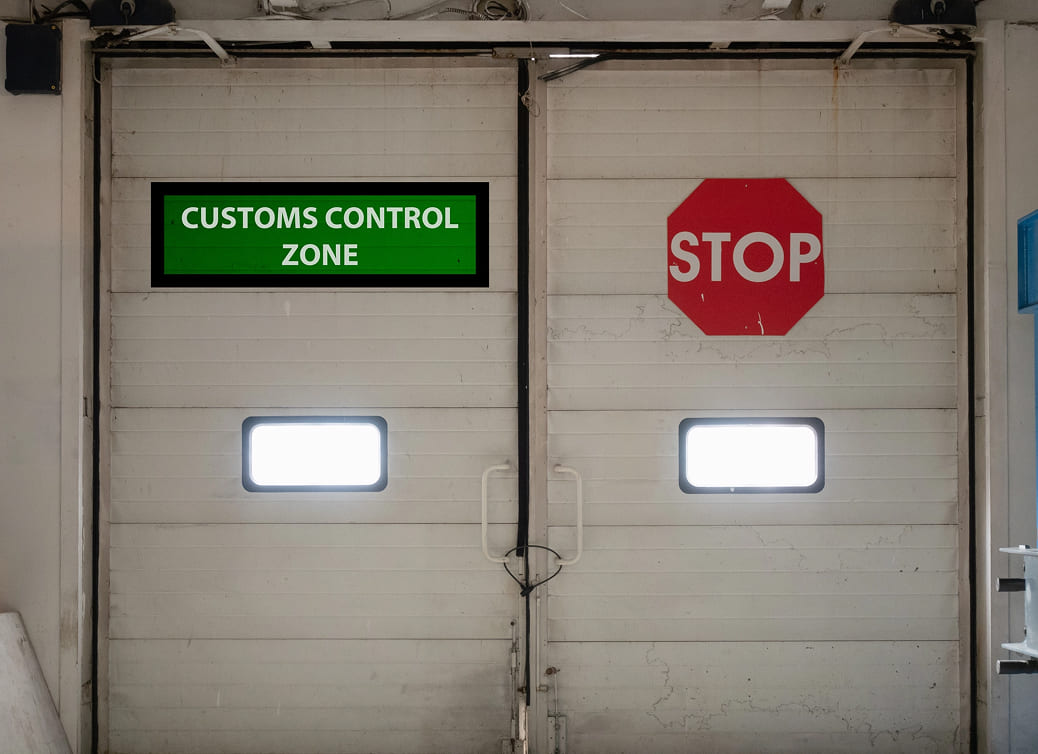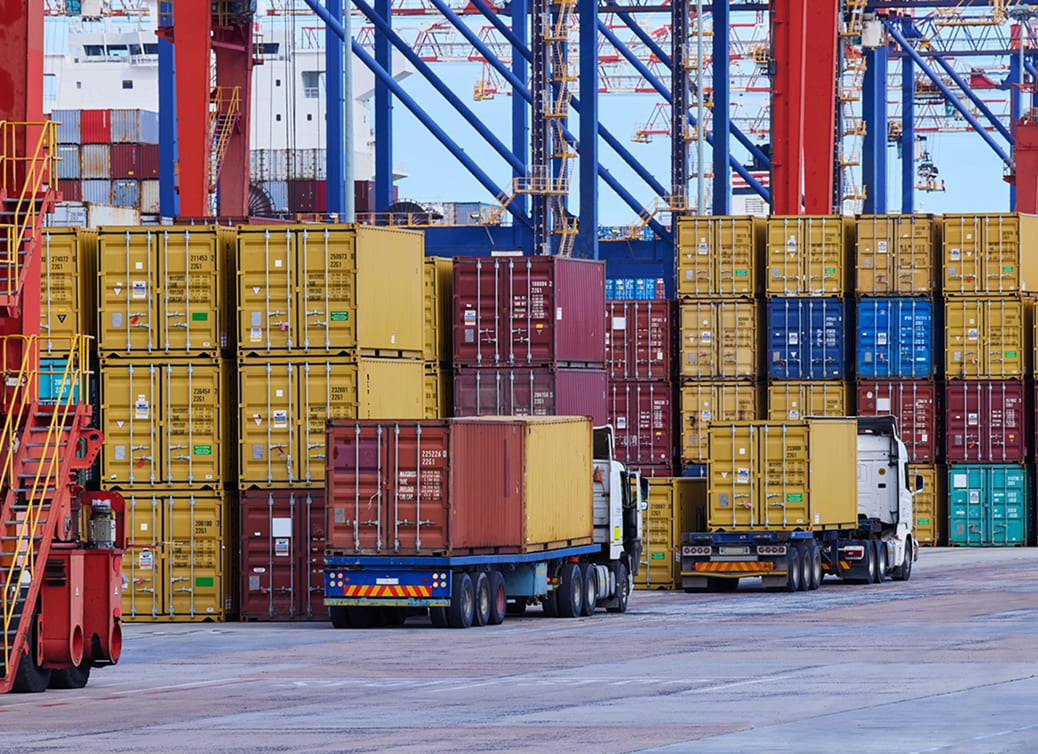Freight Forwarding & Logistics Made Simple

Total Logistics and Customs Management
Successful planning for shipping logistics includes container procurement, consolidated shipping (when applicable), freight tracking, customs clearance, and drayage to the final shipping destination. Mistakes or unexpected problems can delay shipping for months, which can tie up capital and can make businesses miss out on periods of high consumer demand.
Freight & Logistics
We coordinate international and domestic freight through our network of trusted logistics providers, optimizing for speed, cost, and reliability. Whether by air, sea, or land, we handle all transport details for you.
Warehousing
We offer warehousing solutions in strategic global locations to store, consolidate, and prepare products for distribution. This gives you flexibility and better control over your inventory.
Customs & Duties Guidance
Our logistics team helps you navigate customs documentation, tariffs, and import/export regulations to ensure smooth cross-border shipping. We work to prevent delays, fines, and unexpected costs.
Kanary's Freight Forwarding & Logistics Process

Kanary schedules the shipment date as early as possible, usually about two weeks out from when mass production is scheduled to end. For sea freight, our logistics experts book containers based on factory lead times, and we hold suppliers accountable to stay on schedule to avoid shipping delays.

Consolidate Shipment

If applicable, Kanary coordinates between multiple suppliers in order to consolidate your shipment. Our logistics experts make sure inventory is delivered to warehouses for temporary storage and will ensure that your shipments are full-container loads (FCL) in order to save you money.

Preparation of Shipping Documentation

Before and during shipment, Kanary prepares shipping documentation required for exporting and import customs clearance. While specific documentation varies depending on your product type, Kanary will handle all of it. Common documentation we provide to clients include:
- Bill of Lading
- Commercial invoice
- Packing list
- HS and HTS Codes (as well as research to ensure those codes are correct)

Customs Clearance

Kanary manages the customs clearance process once your products arrive at port. Our customs experts provide additional documentation as needed and troubleshoot customs issues if they arrive. Our team also communicates unavoidable delays (like random X-rays), and updates new shipping expectations to our clients in real time.

Drayage to Final Destination

Kanary coordinates the pick up of your products with local freight partners before you clear customs. Once your order clears customs, local freight partners will already be waiting on standby to pick up and deliver your products to their final destination. Kanary continues to supervise your order until the final delivery is complete.









Freight Forwarding & Logistics by the Numbers
Get Your Products Delivered On Time, Every Time
Other Services
Get Connected
As a loose guide, the typical “sweet spot” Kanary client who will benefit the most from our process and scaleable expertise will have annual gross revenue starting at approximately 5 million USD. If your business meets—or is approaching—this threshold, we can help you!
FAQ
What is consolidated shipping?
Consolidated shipping is a logistics strategy for sea freight shipping. In this strategy, products are sent to temporary warehouses until there is enough inventory to fill a sea freight container, which makes a full-container load (FCL).
How does consolidated shipping save my business money?
Consolidated shipping can save businesses money and resources in a variety of ways:
- Lower shipping costs: It is far less expensive to ship a single, FCL container than it is to ship multiple, smaller, LCL containers.
- Easier to dock at ports: Since FCL containers typically don't have products unloaded (the container is moved onto truck or rail freight), there is a special place for FCL containers to be unloaded. This is usually less crowded, since most shipments are LCL, so businesses will have an easier time getting through the ports.
- Easier customs clearance process: In an LCL shipment, if any order gets flagged by customs, the entire container will be delayed. Since an FCL shipment only has your
What are the challenges of consolidated shipping from China?
Consolidated shipping has incredible benefits, but it's not without its challenges. Businesses need to be prepared to address:
- Communication issues: Consolidate shipping requires extensive communication between suppliers, temporary storage locations, and export docks. If your team can't communicate in Mandarin, you may struggle to implement and follow a consolidated shipping plan.
- Logistical complexity: Even without a language barrier, consolidated shipping is complex. You need to know how to coordinate lead times between suppliers, where to store products, and how to match lead times with shipping availability.
- Container availability: If containers are in short supply (like they were during the COVID-19 pandemic), containers may be in short supply. This means you'll need to book containers far in advance (weeks, sometimes months) in order to have a container available for when your products are ready to ship.
Many businesses feel that they are not equipped to manage the challenges of consolidated shipping, so they reach out to a third-party to manage the logistics for them, like Kanary.
How do I clear customs when ordering from China?
Clearing customs from China requires correct documentation. The majority of customs delays when importing from China are the result of having incomplete paperwork, so businesses need to make sure that all documentation is complete and accurate. This includes:
- Bill of lading
- Packing invoice
- Commercial invoice
- HS and HTS codes
How long does sea freight shipping take from China?
Sea freight shipping times from China will vary depending on where you ship from and where you ship to. In general, if you ship from Shanghai, sea freight shipments will arrive at west coast ports within 2-3 weeks, while shipments to the east coast can take 30-35 days.Keep in mind that these shipping times are estimates and do not account for delays caused by supply chain disruptions.
What are common mistakes when organizing sea freight shipping logistics?
Some common mistakes when organizing sea freight shipping logistics include:
- Booking a container too late, causing a shipping delay
- Booking the wrong-sized container, which can cause delays and extra charges if the container was too small, and wasted money and time if the container is too large.
- Not utilizing consolidated shipping, when applicable
- Allowing suppliers to research and apply HS and HTS codes for customs clearance
When should I book a shipping container from China?
Generally, you want to book a shipping container close to when mass production begins with your China supplier. If there is a shipping container shortage, you may need to book a container even earlier than that.
How much does it cost to ship from China?
The cost of shipping from China will vary widely on a number of factors, including:
- What kind of shipping is used: Sea freight shipping is generally less expensive than air freight
- The product being shipped: Product weight will have a huge impact on air freight shipping costs (though it's much less of a factor in sea freight)
- The size of the product being shipped: Large products will be charged more when shipped via air freight, even if they are lightweight. For sea freight, large products means you may need to order a larger container size, which will increase shipping costs.
- The volume of your total order: The more products you ship, the more you'll pay in shipping costs
- How many containers you need to ship: The more containers you need, the more your shipping costs will be. This is why businesses often follow a consolidated shipping strategy, because it's less expensive to fill one large container than it is to partially fill multiple small containers.
- here products are being shipped to: Generally, the further away the final destination is, the more it will cost to ship your products.
What is the best way to get sea freight rates?
The best way to get excellent sea freight shipping rates is to book your shipping container well in advance and follow a consolidated shipping strategy (if your product volume is high enough to fill a container).
What does "logistics" mean in shipping?
Logistics refers to planning when and how products are shipped. For example, shipping logistics from China include:
- When products will be delivered from the factory to temporary storage or a shipping port
- Booking shipping containers
- Monitoring freight shipping
- Organizing order pickup from the ports
- Delivery to the final destination
How long does it take to clear customs?
Clearing customs can take as little as 24 hours, but there are a lot of reasons it can take longer, like:
- Congested ports
- Incomplete paperwork
- Random x-ray screenings
- Order issues in an LCL shipment
What are HS and HTS codes, and why do they matter?
An HS code (or Harmonized System code) is a six-digit number used to determine tariffs or duties when exporting products. An HTS code (or Harmonized Tariff Schedule code) is 10-digits, and is used to determine tariffs when importing products. HTS codes are country specific (for example, HTS codes for the United States will be different than the United Kingdom).
These codes are extremely important for businesses to have correct. If you choose the wrong code and pay too much tax, then you're paying more money than you need to (and customs will not correct you). If you end up paying too little, it will give the appearance that you are trying to avoid taxes, and you'll have to pay the difference and a fine.
If you aren't sure whether your HS or HTS codes are correct, working with a third-party with export and import expertise (like Kanary) can help avoid tariff issues.
